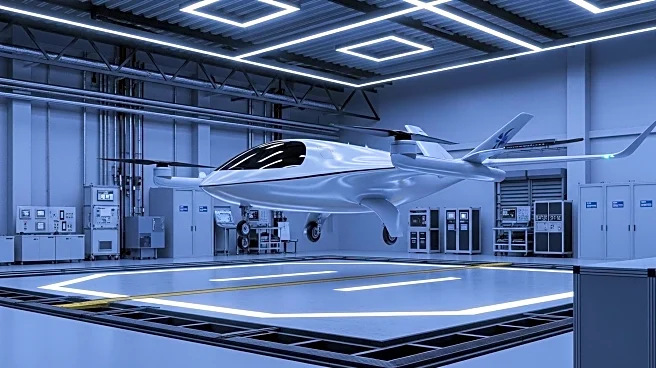What's Happening?
The Federal Aviation Administration (FAA) has initiated a pilot program aimed at electric vertical takeoff and landing (eVTOL) startups, allowing them to test operations prior to obtaining full regulatory certification. This program represents a significant development for companies that have been limited to conducting test flights while seeking FAA approval. To be eligible, companies must collaborate with state, local, tribal, or territorial governments. The FAA intends to approve at least five projects, which can span up to three years. These projects will cover various areas including short-range air taxis, long-range fixed-wing flights, cargo hauling, emergency or medical logistics, and automation safety. The data collected from successful projects is expected to contribute to the regulatory framework for the advanced air mobility (AAM) sector. Companies such as Joby Aviation and Archer Aviation have shown interest in applying, with applications due by December 11, 2025, and pilot projects potentially commencing in 2026.
Why It's Important?
This pilot program is crucial for the burgeoning eVTOL industry, as it provides a structured pathway for startups to demonstrate their technologies and gather data essential for regulatory approval. The initiative could accelerate the integration of eVTOLs into the transportation ecosystem, potentially transforming urban mobility and logistics. By facilitating partnerships with government entities, the program ensures that local needs and regulations are considered, fostering a collaborative approach to innovation. The success of these projects could lead to advancements in air taxi services, emergency response capabilities, and cargo transport, offering economic and societal benefits. Stakeholders in the aerospace industry, urban planners, and logistics companies stand to gain from the insights and developments arising from this program.
What's Next?
The next steps involve the submission of applications by interested companies, with a deadline set for December 11, 2025. Following the application process, the FAA will select and approve projects, which could begin as early as 2026. As the program progresses, stakeholders will likely monitor the outcomes closely, assessing the viability and safety of eVTOL operations. The data and experiences gained from these pilot projects will inform future regulatory decisions, potentially leading to broader adoption and commercialization of eVTOL technologies. Companies participating in the program will need to navigate technical challenges and regulatory requirements, while also engaging with local communities to address any concerns.
Beyond the Headlines
The pilot program may also have implications for environmental sustainability, as eVTOLs offer a cleaner alternative to traditional aircraft. The focus on automation safety and emergency logistics could lead to innovations that enhance public safety and disaster response capabilities. Additionally, the collaboration between startups and government entities might set a precedent for future public-private partnerships in the aerospace sector, encouraging more cooperative approaches to technological advancement.









